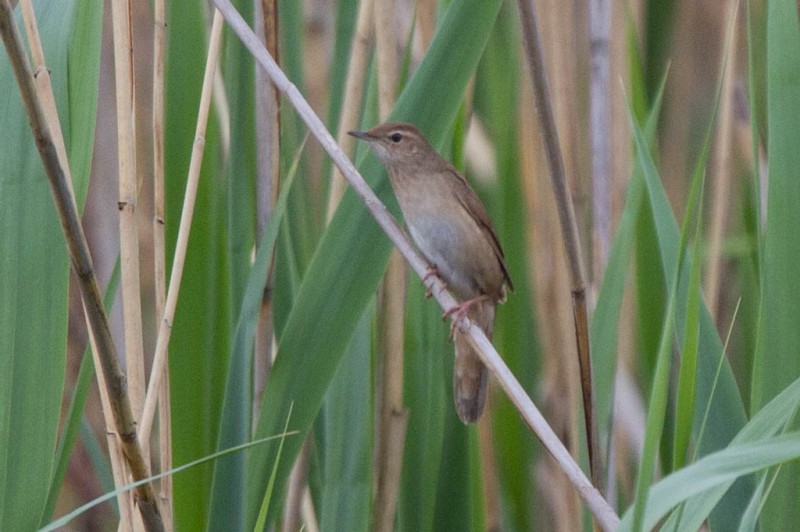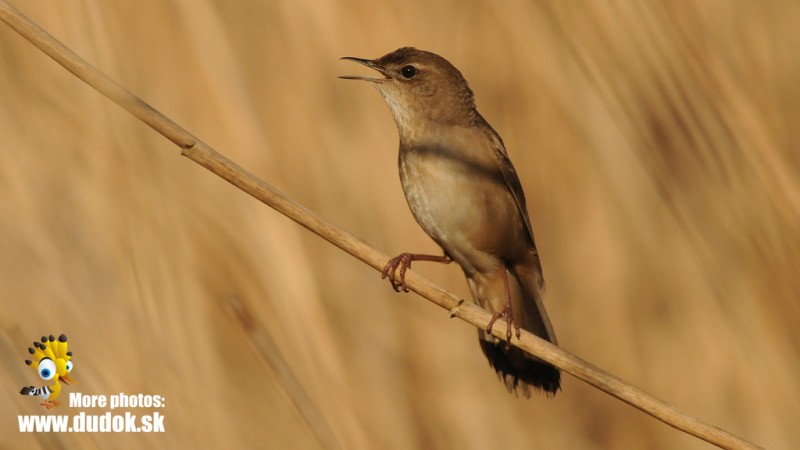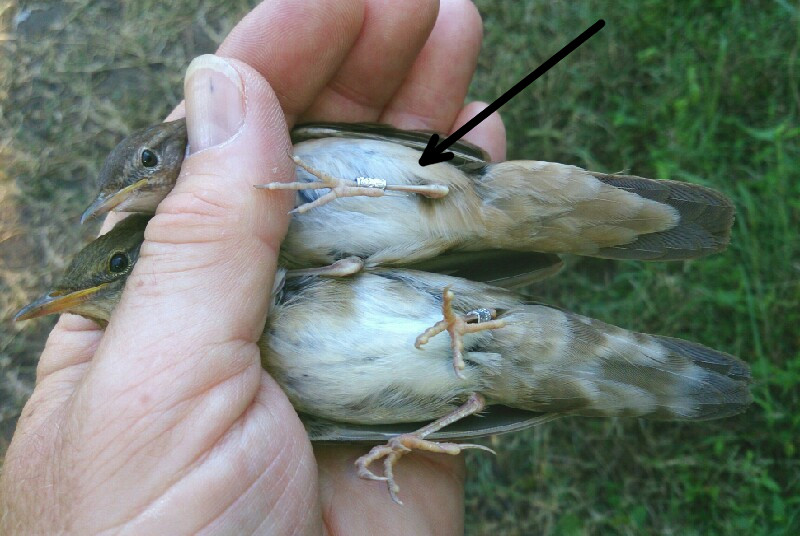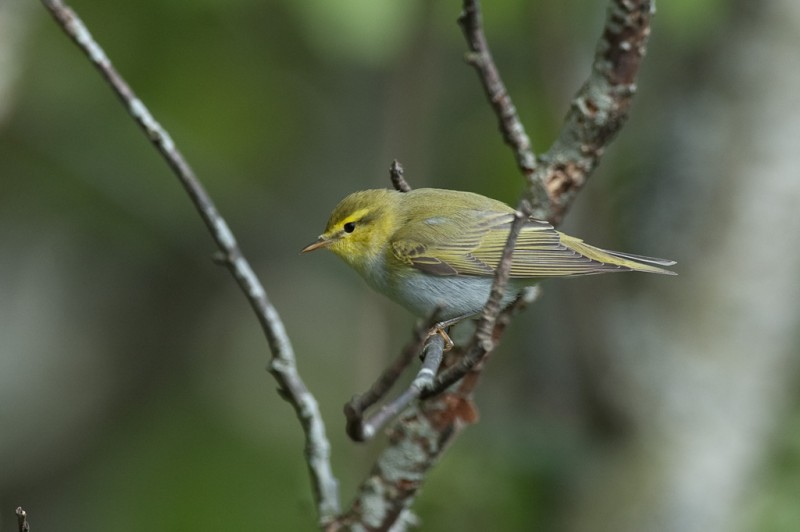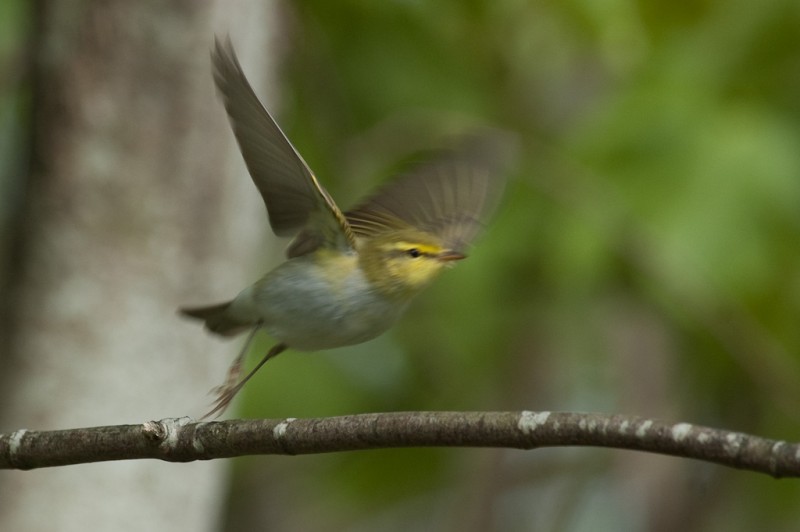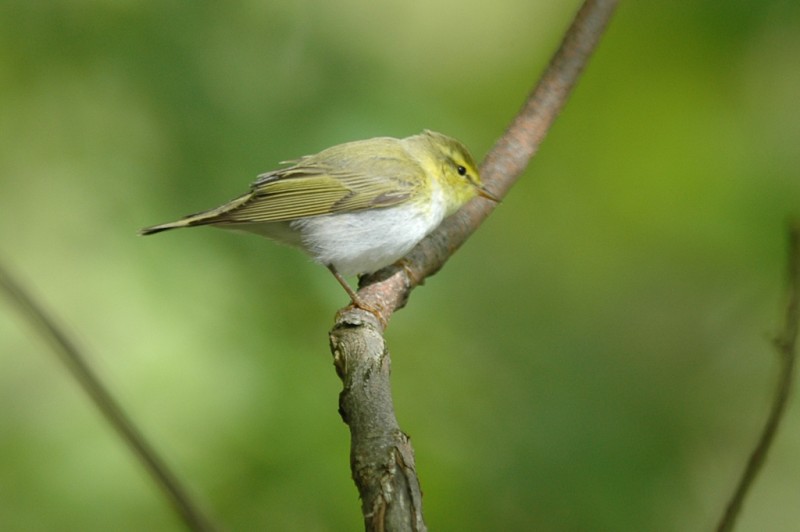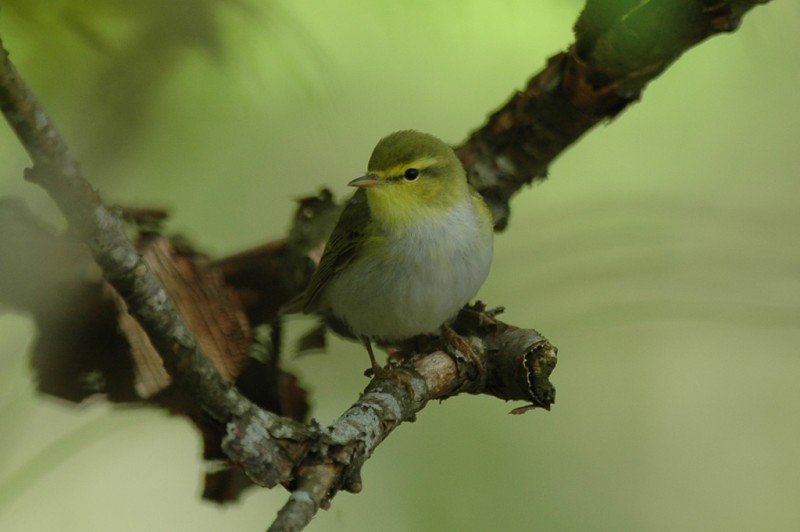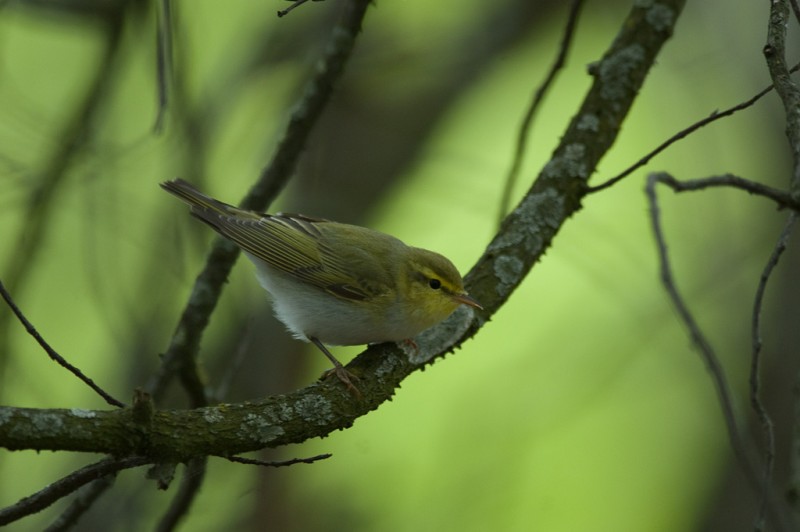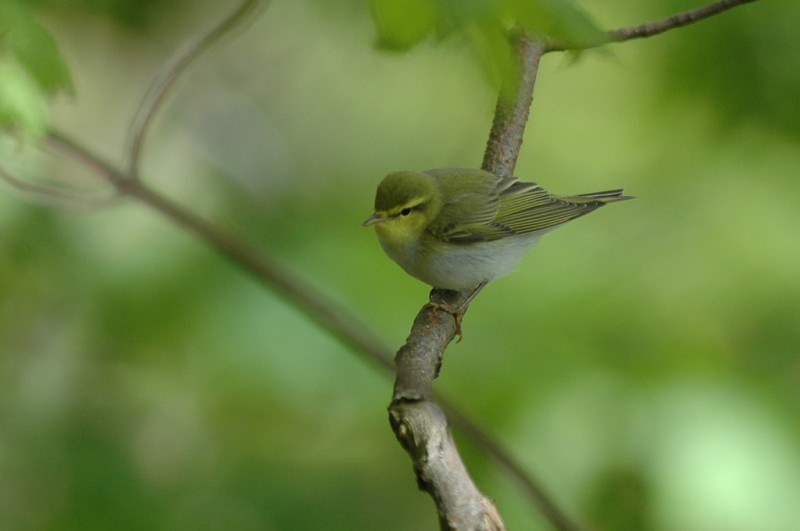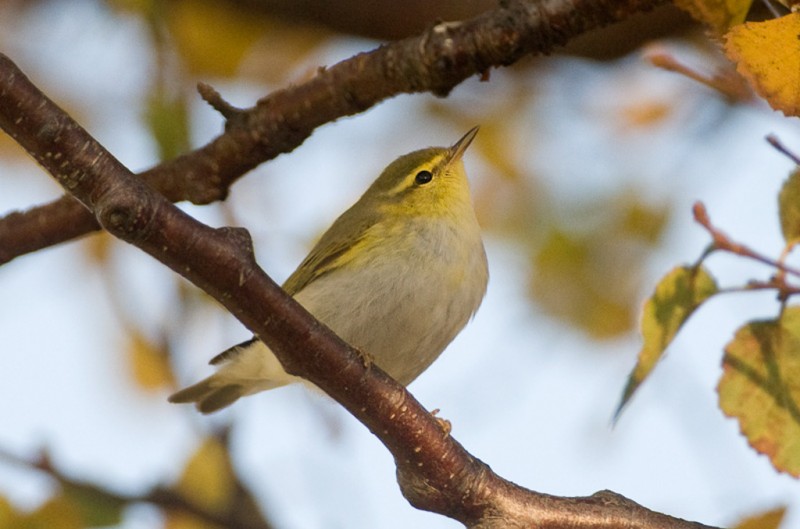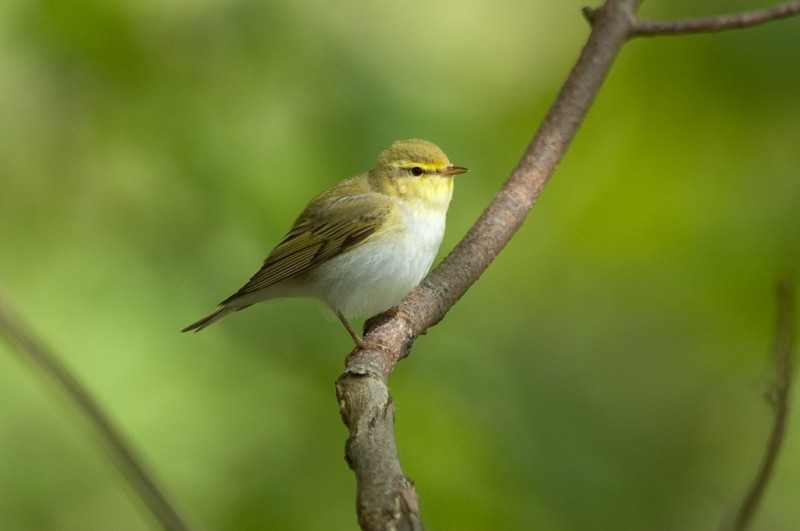Savi's Warbler (Locustella luscinioides)
Wood Warbler (Phylloscopus sibilatrix)
Reedbed-living, dull coloured warbler with fan-shaped tail. Under tail coverts lacking pale fringes or markings. Vague and short supercilium. Differs from other locustella by unstreaked chest, back and under tail coverts. From Reed Warbler and Marsh Warbler by very long and buff under tail coverts, smaller head and pinkish legs.
Sound:Song insect-like and high-pitched. A monotonous stream of even clicks similar to the whirring of a sewing machine. Song most similar to Grasshopper Warbler but faster (each click hard to distinguish), and lower pitched with less, ringing quality, due to less prominent high frequencies. At closer range a Robin-like, accelerating ticking is heard, introducing the actual song.
Song:
Distribution:
Xeno-canto: map
Ecology:Birdlife ecology
Links:
Observation.org Latest observations
Image search Flickr NB! May give other species
CCCC-photo:sussexbirder, Licence,Link.
Most distinct species of the genus. Most similar to Willow Warbler, but with much more contrasting plumage. Upperparts pure green. Throat and upper chest yellow, contrasting with pure white underparts. Distinct and strong yellow supercilium and black eye-stripe. Long primary projection, with primaries reaching middle of relatively short tail. Tertials with pale green fringes. Legs pale yellowish brown. Posture often horizontal with drooping wings.
Sound:Song distinct. An accelerating series of sharp, metallic "swee-swee-swee-swee". Typically with a staccato beginning. Pitch drops as the speed increases and the syllables fuses into a continuous trill. Often described as the sound of a spinning coin coming to rest on a glass table. Some phrases may be given in an almost even tempo, and may recall Bonelli's Warbler. Alternative (piping) song a series of 4-6 piping, plaintive and descending "pew - pew" calls. Resembles Willow Tit's song, but is softer with each note more evenly pitched. Contact call similar to individual syllables of piping song, but with heavier accent on the ending.
Song (two variants):
Distribution:
Wikipedia: map (se also Xeno-canto below)
Ecology:Birdlife ecology
Links:
Observation.org Latest observations
Image search Flickr NB! May give other species
CC
 English
English Albanian
Albanian
 Armenian
Armenian
 Bulgarian
Bulgarian
 Catalan
Catalan
 Croatian
Croatian
 Czech
Czech
 Danish
Danish
 Dutch
Dutch
 Finnish
Finnish
 French
French
 Georgian
Georgian
 German
German
 Greek
Greek
 Hungarian
Hungarian
 Italian
Italian
 Latvian
Latvian
 Lithuanian
Lithuanian
 Macedonian
Macedonian
 Norwegian
Norwegian
 Polish
Polish
 Portuguese
Portuguese
 Romanian
Romanian
 Russian
Russian
 Sami : Lule sami
Sami : Lule sami
 Sami : North sami
Sami : North sami
 Sami : South sami
Sami : South sami
 Scientific names
Scientific names
 Serbian
Serbian
 Spanish
Spanish
 Swedish
Swedish
 Ukrainian
Ukrainian

